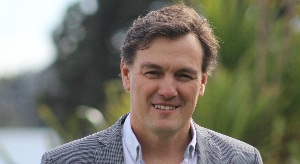
John Berry

John Berry
Morningstar has released new data showing that on average, KiwiSaver conservative funds were down 2.98% in March, balanced down 8%, growth down 10.56% and aggressive down 11.91%.
Over the three months to the end of March, conservative funds were down 2.12%, balanced 8.95%, growth 12.39% and aggressive 14.86%.
ANZ’s conservative fund fell 1.7% in the first quarter, Milford’s 3.9% and Booster’s 2.3%. At the same time, CareSaver returned a positive 1.8%.
In balanced funds, CareSaver lost 3.6% compared to 7.4% for Fisher Funds, 8.6% for ANZ and 10% for Milford.
CareSaver chief executive John Berry said investors in CareSaver have benefited from its funds’ active approach to investing, their ability to respond quickly to market developments and their focus on companies with strong environmental, social and governance (ESG) credentials.
“Conservative funds are designed to protect investors from the extreme market volatility we have seen over the last month, so many savers in these funds should question why their investments have performed poorly,” he said.
“Investors trust their manager to look after their retirement savings. Managing investments in a bull market is easy, but bear markets sort out the good managers from the bad. We are delighted with our performance given the very testing conditions we have faced.”
Head of investment Paul Brownsey said it had moved more money to cash as markets fell and focused on quality companies. It had also adjusted its currency hedge. Offshore investments are 70% unhedged because CareSaver sees more downside risk to the New Zealand dollar.
“CareSaver has also actively avoided corporate bonds, and entire industries like hotels, casinos and airlines. Many times, as an active manager, we were up all night following events overseas and responding to new market developments. Compare that to a passive manager that just has to take whatever losses the market serves them.”
Morningstar data director for Asia Pacific Greg Bunkall said CareSaver had held up well.
He said having higher cash balances was a benefit for the manager. CareSaver now has 47% equity exposure in its growth fund, 22% in balanced and 3% in conservative.
“As an ESG/sustainable manager – they are naturally going to be avoiding things that have not performed relatively well. Oil, airlines and gambling are avoided – and they are parts of the market that have been hardest hit. In fact our head of ESG investing in the US has been highlighting research that ESG tilted funds are performing better than general funds.”
Brownsey said companies that were selected based on ESG metrics were more resilient in a down market and had better results in up markets.
| « KiwiSaver withdrawal process 'should be easier' | Our $100 billion debt of gratitude » |
Special Offers
No comments yet
Sign In to add your comment

© Copyright 1997-2026 Tarawera Publishing Ltd. All Rights Reserved